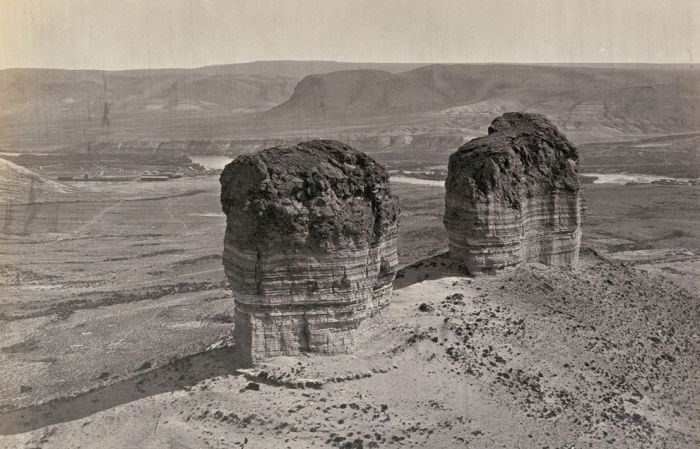|
|
History: American Old West, United States
|
• Bleeding Kansas
By the mid-1850s, the Kansas territory had a population of only a few hundred settlers but it became the focus of the slavery question. Of its neighboring states, Missouri was a slave state and Iowa was not. With the Kansas-Nebraska Act of 1854, Congress repealed the Missouri Compromise which blocked slavery in Kansas, therefore leaving the decision up to Kansas. The stakes were high. Adoption of slavery in Kansas would have given the slave states a two-vote majority in the Senate and abolitionists were intent on blocking that. To influence the territorial decision, abolitionists (also called "Jayhawkers" or "Free-soilers") financed the migration of anti-slavery settlers. But pro-slavery advocates secured the outcome of the territorial vote by bringing in "Border Ruffians", rowdies from Missouri who stuffed ballot boxes and intimidated voters. The anti-slavers then sent Sharps rifles ("Beecher's Bibles") and ammunition to supporters in Kansas, leading to widespread violence and destruction which prompted the New York Tribune to call the territory "Bleeding Kansas."
• Dred Scott
The Dred Scott decision by the Supreme Court of the United States in 1857 declared the Missouri Compromise unconstitutional and that Congress had no authority to exclude slavery from the territories, thus opening these areas to slavery again depending on the local vote. Despite the efforts by presidents Franklin Pierce and James Buchanan to influence Kansas territorial governors to vote pro-slavery, Kansas voted to become a free state and the thirty-fourth state of the Union in 1861. The conflict also helped to foster the organization and development of the Republican Party in 1856, a mixture of free-soilers, expansionists, and federalists who opposed the extension of slavery into the Western territories. Abraham Lincoln, an early Republican, made clear his position on slavery in the famous Lincoln-Douglas debates which helped propel him to the presidency in 1860, "Never forget that we have before us this whole matter of the right or wrong of slavery in this Union, though the immediate question is as to its spreading out into new Territories and States". Lincoln branded slavery as a "monstrous injustice" and a "moral, social, and political evil". In 1862, Lincoln signed a law prohibiting the spread of slavery into all the remaining territorial possessions. During Lincoln's administration, two other important acts were passed which impacted the West—the Homestead Act and the Pacific Railroad Act.
|
|









